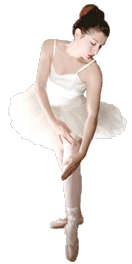A zither is both a family of stringed instruments and a particular stringed instrument. The family that takes the name are instruments with stretched strings, also known as simple chordophones in the Hornbostel-Sachs classification system. If there is a resonator in a simple zither, it must be capable of being detached without eliminating the ability to produce sounds. This separates these instruments from composite chordophones, which feature a built-in resonator, as well as a yoke, neck, or other string holding element.
The subsets of this family are bar zithers, tube zithers, raft zithers, box zithers, board zithers, trough zithers, and frame zithers. Most sound when the strings are plucked, but some are bowed or struck. Among the keyboard instruments, the piano is a box zither, as are the harpsichord and the clavichord. Dulcimers — also used both as a class and as a member of the class — are box zithers with multiple strings and no keyboard. Autoharps are box zithers with damper bars that allow the player to choose chords by pressing buttons.

The particular instrument called a zither is one of two different types. One type is sometimes referred to as the fretless zither, which has many variations. The other is the concert zither, which characteristically has five melody strings that are stretched over a fretted fingerboard and unfretted harmony strings that are not fretted, and may include chord groups. The instrument came into being in the Alps, and Carl Ignaz Umlauf is credited with the invention of the Viennese family of zithers.
Music for the zither has reached outside of Bavarian folk songs in several ways. Many may be surprised to learn that there is a solo for this instrument in Johann Strauss’s piece, "Tale from the Vienna Woods." The movie version of The Third Man, based on a Graham Greene novel, features a zither in the theme music. The score was composed and performed by Viennese composer and zither player Anton Karas.
Other famous players have included Hans Lanner, Rudy Knabl, Cornelia Mayer, and Alfons Bauer. The repertoire for this instrument has expanded beyond its origin, and today it includes jazz and pop, as well as folk and classical pieces. The autoharp, too, has flourished, making its way into such varied genres as flamenco, jazz, and Caribbean.
A special zither experience is available in Vienna through Mayer Music. If you are interested in learning about playing the instrument and its repertoire without first investing in one, you can take a set of two lessons, which will allow not only introduce you to the zither, but also to the culture of Viennese folk songs. Performances by artists from around the world using the instrument are given throughout the United States, often in association with a college or university.
